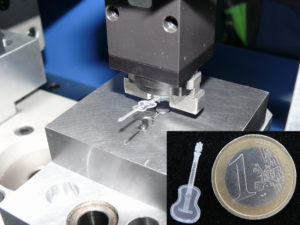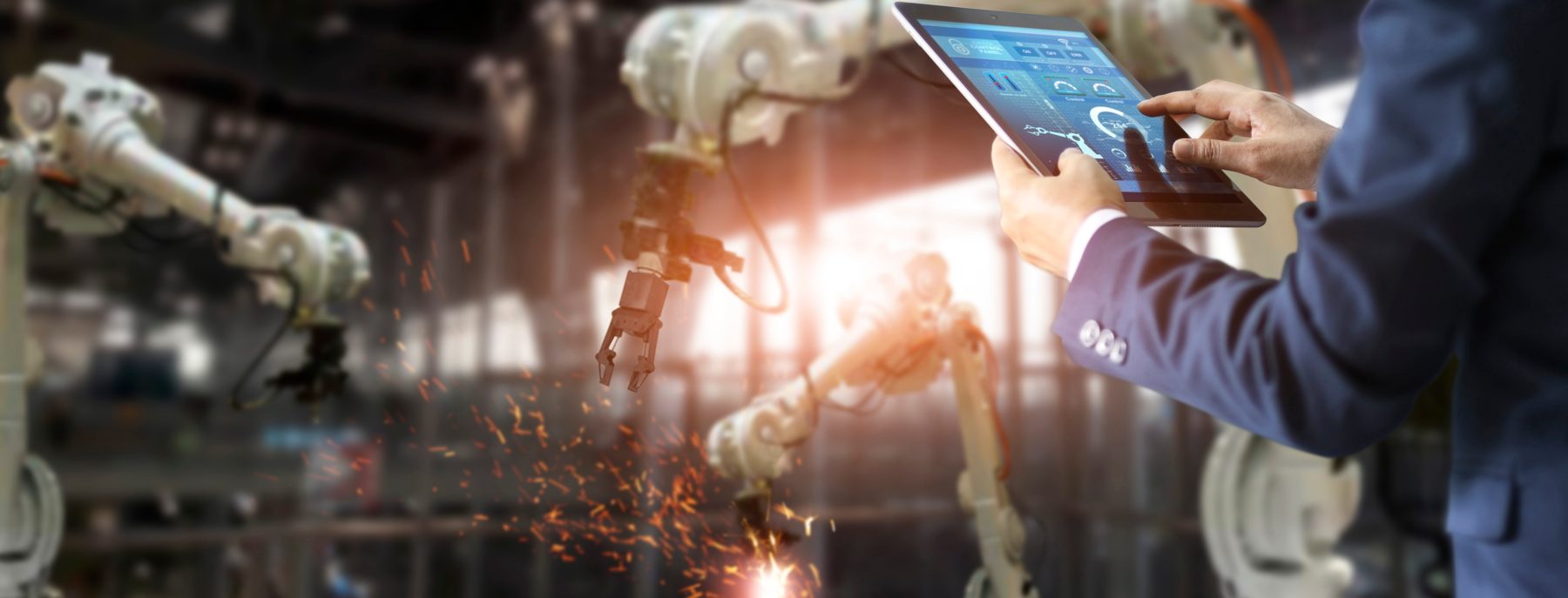EURECAT – Ultrasonics for high precision micro moulding
EARTO Innovation Awards 2016 – Impact Delivered Category
Third Prize

 An upward trend in a number of industrial sectors today, like electronics, medical or telecommunications is miniaturisation. This is why moulders need a cost-effective, accurate and efficient technology for the manufacture of functional micro pieces with complex shapes. After many years of research, EARTO member Eurecat has developed such technology using ultrasounds for material melting. The result has been materialised in the Sonorus 1G, the first high precision thermoplastic micro moulding machine based on ultrasounds, which is being commercialised by Eurecat’s spin-off Ultrasion since 2013.
Injection moulding is a technology that has been around in the manufacturing industry for decades. As the demand for miniaturisation has grown, the conventional macro process has been progressively scaled down and adapted to micro moulding. However, such process exhibits many drawbacks such as energy inefficiency, material waste and expensive tooling. To overcome these challenges, Eurecat has specifically designed and developed an innovative technology for micro moulding, applying the high-frequency ultrasounds technology, already used in other sectors like welding, to the moulding process.
An upward trend in a number of industrial sectors today, like electronics, medical or telecommunications is miniaturisation. This is why moulders need a cost-effective, accurate and efficient technology for the manufacture of functional micro pieces with complex shapes. After many years of research, EARTO member Eurecat has developed such technology using ultrasounds for material melting. The result has been materialised in the Sonorus 1G, the first high precision thermoplastic micro moulding machine based on ultrasounds, which is being commercialised by Eurecat’s spin-off Ultrasion since 2013.
Injection moulding is a technology that has been around in the manufacturing industry for decades. As the demand for miniaturisation has grown, the conventional macro process has been progressively scaled down and adapted to micro moulding. However, such process exhibits many drawbacks such as energy inefficiency, material waste and expensive tooling. To overcome these challenges, Eurecat has specifically designed and developed an innovative technology for micro moulding, applying the high-frequency ultrasounds technology, already used in other sectors like welding, to the moulding process.
 Ultrasonics micro moulding allows for outstanding precision with 15mm long 0.075mm thick parts easily achievable.
Ultrasonics micro moulding allows for outstanding precision with 15mm long 0.075mm thick parts easily achievable. Reduced energy use by up to 90% compared to alternative technologies.
Reduced energy use by up to 90% compared to alternative technologies. Manufacturers reported up to 300% increase in productivity using Ultrasion technology
Manufacturers reported up to 300% increase in productivity using Ultrasion technologyMore information about this innovation
 Eurecat is the main Technology Centre in Catalonia, Spain, with revenues of €36 million a year. Its multidisciplinary and multinational team of 450 scientists and technologists work in more than 160 projects of applied R&D, aiming at the acquisition of new knowledge for transfer to specific applications and solutions that meet the needs of the industrial fabric.
www.eurecat.org
Eurecat is the main Technology Centre in Catalonia, Spain, with revenues of €36 million a year. Its multidisciplinary and multinational team of 450 scientists and technologists work in more than 160 projects of applied R&D, aiming at the acquisition of new knowledge for transfer to specific applications and solutions that meet the needs of the industrial fabric.
www.eurecat.org
< Previous Next >

